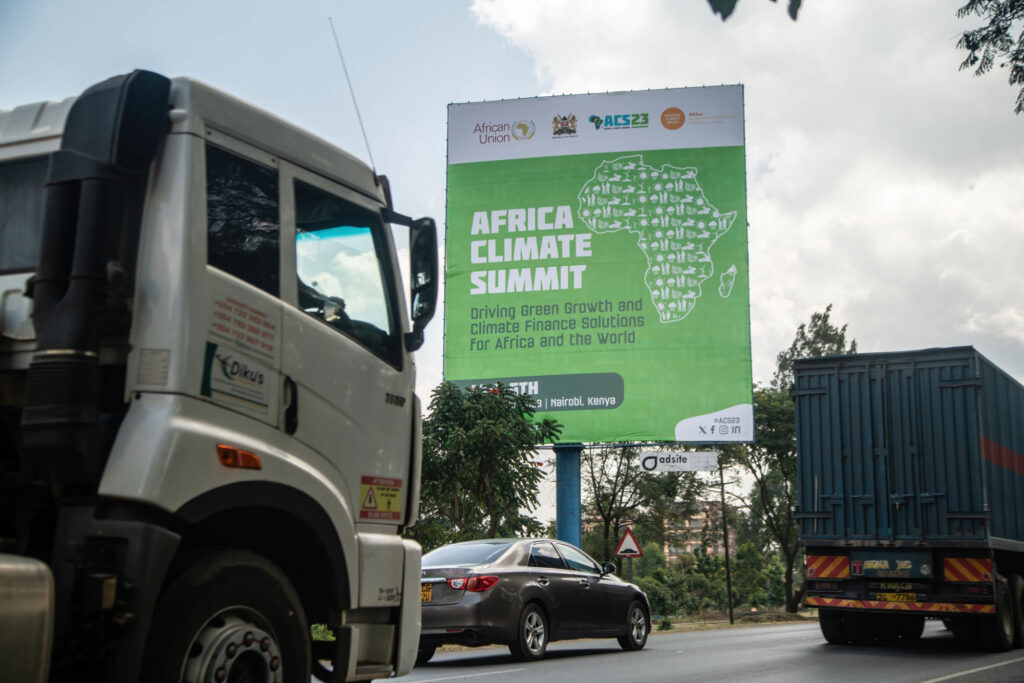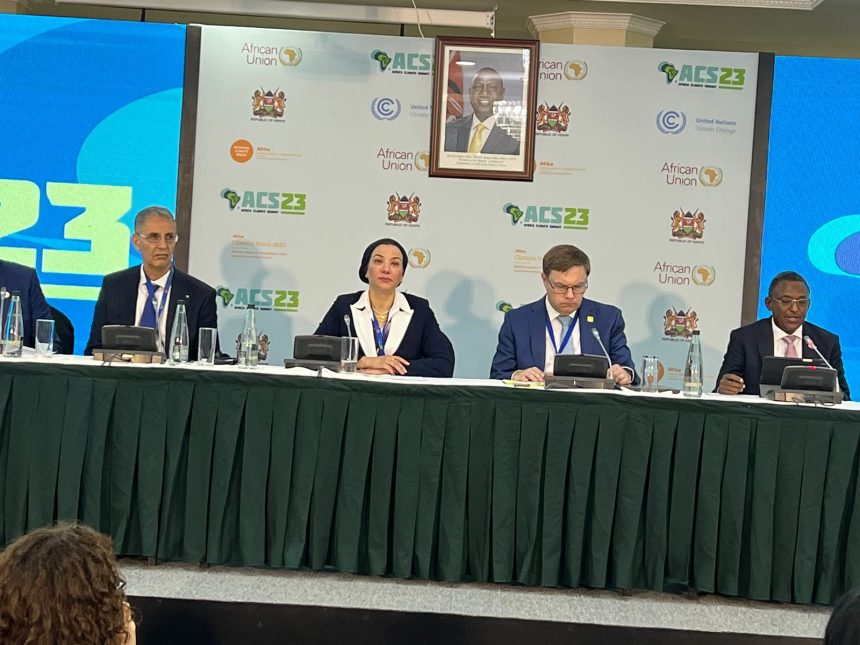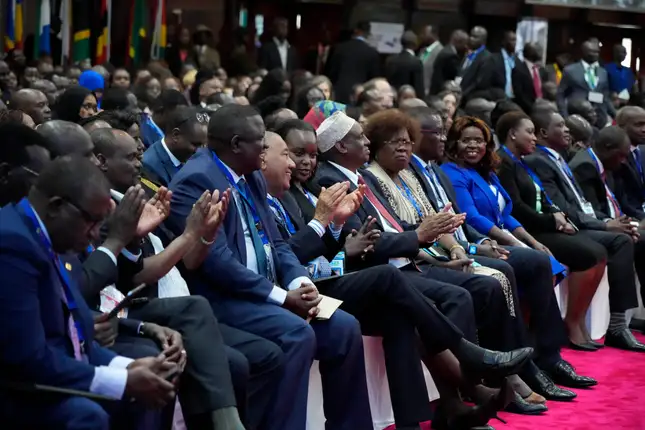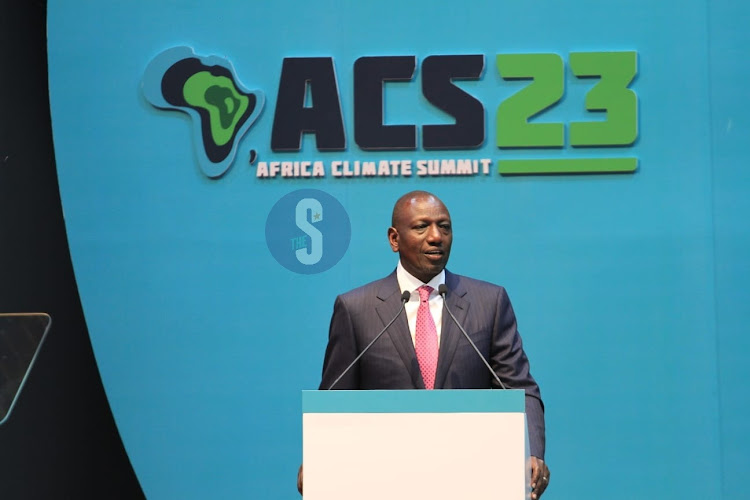Ruto stated that the world should assist in getting money for Africa, which has 1.4 billion people, and reduce the heavy debts African countries have. They’ve also increased security and closed roads near the Nairobi summit location, where 30,000 people are expected to attend, according to the government.
The gathering begins in Nairobi while Kenyan President Ruto, who supports it, is being accused of saying one thing but doing another when it comes to climate change.
Over a dozen African leaders and passionate climate change advocates from around the world are coming together in Kenya for the first-ever Africa Climate Summit. This event is taking place from Monday to Friday and has been organized to tackle the growing impact of climate change in Africa and the resulting expenses for the continent.
The United Nations states that Africa is responsible for just 2 to 3 percent of the world’s carbon emissions, yet it has suffered the most from the effects of global warming.
Why is the Africa Climate Summit taking place? The Kenyan government and the African Union are arranging this summit, which coincides with Africa Climate Week. The main focus is on promoting environmentally friendly economic growth and finding financial solutions for both Africa and the rest of the world.
Kenyan President William Ruto has been outspoken about the need for wealthy countries to take responsibility for their role in causing climate change.

We must hold accountable those responsible for the climate crisis, the ones emitting greenhouse gases, and create a fair system,” said Ruto in February.
The summit aims to influence climate commitments, including the Nairobi Declaration, which outlines Africa’s transition to green energy.
Since 2022, over 4,000 people in Africa have died, and 19 million have been affected by extreme weather events. The UN estimates annual losses of $7 billion to $15 billion due to climate change in Africa. To address this, African countries need $124 billion annually but have received only $28 billion so far.
The limited funding has caused worry and has made the summit crucial to changing the situation regarding climate change funding.
As per the summit organizers, their aim is to achieve environmentally beneficial economic growth and financial solutions for both Africa and the world. They also intend to present a unified stance in preparation for the COP28 summit in the United Arab Emirates on November 30.
The summit will feature discussions on topics such as funding climate initiatives, increasing global climate funding for Africa, investing in nature and biodiversity, and building well-planned, sustainable African cities.

Kenyan Environment Cabinet Secretary Soipan Tuya has announced that roughly 20 heads of state will be present at the summit, with about 18,500 participants from around the world already registered and accredited. The summit expects around 30,000 attendees in total.
Prominent figures, including UN Secretary-General Antonio Guterres, US climate envoy John Kerry, COP28 Director-General Majid Al Suwaidi, and COP28 President Sultan Al Jaber, have confirmed their attendance. COP28 is the upcoming annual global climate summit scheduled for December.
The climate talks in Nairobi also feature cabinet ministers and business leaders from across Africa.
The list of attending presidents remains uncertain, with only leaders from Burundi, Comoros, Ghana, Madagascar, Malawi, and Sierra Leone confirmed to be in Kenya.
Questions have arisen about whether African leaders are prioritizing other simultaneous events such as the Africa Food Systems summit in Dar es Salaam, Tanzania, and the G20 summit in New Delhi, India, especially considering the UN General Assembly meeting in New York.

The controversies surrounding the summit involve African nations pressing for their expectations, which include urging wealthier countries to fulfill the $100 billion per year promise made at COP15 in Copenhagen. This funding is meant to support efforts to reduce greenhouse gas emissions and address the climate crisis in African nations.
Many civil society organizations are urging the summit to make a significant commitment to Africa. These groups argue that Western governments, consulting firms, and philanthropic organizations have disregarded Africa’s climate concerns and viewpoints, instead using the summit to promote a Western agenda, to the detriment of Africa.
Mithika Mwenda, the executive director of the Pan African Climate Justice Alliance, criticized the Kenyan government for being overly focused on carbon markets during a press conference on August 28. He emphasized the need for the summit to advocate for significantly increasing adaptation funding for Africa, ensuring it aligns with Africa’s specific requirements and reaches the communities most affected by the climate crisis.

Over 400 African civil society organizations also expressed concerns in an open letter to Ruto. They pointed out that some African groups with Western interests had too much influence in organizing the event. As a result, the summit’s agenda appeared to prioritize Western concerns like carbon markets, carbon sequestration, and ‘climate-positive’ approaches, which could benefit wealthy nations and large corporations while harming Africa.
Out of approximately 40 summit partners, only a quarter are actually from Africa. Additionally, Ruto, who leads the committee of African governments on climate change, has faced criticism for apparent contradictions. Despite advocating for environmental conservation, he lifted a six-year logging ban in July, going against the previous government’s efforts to protect Kenyan forests. Neither Ruto nor his government has responded to the letter from civil society organizations

